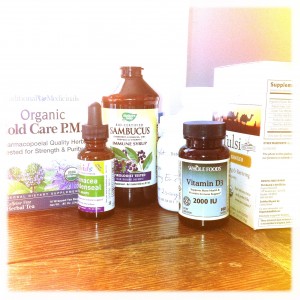“But I don’t feel stressed!”
How does stress affect your body? Stress affects multi-systems. Here is a quick run through the major players in the stress domino effect, and some at home tips to balance and harmonize your stress hormones.
PHASE 1 (ALARM) There is a threat to your being. Your adrenal glands kick in and start producing hormones – for example, adrenaline.
PHASE 2 (RESISTANCE) You are holding up a good fight. You think you’ve won.
PHASE 3 (EXHAUSTION) Lots of small stresses add up. Eventually you can’t take it anymore. Body systems get run down, especially the immune system.
Adrenal glands
The adrenals are small, paired glands that sit on top of your kidneys, and secrete the “stress hormones” cortisol and adrenaline. When you are under stress, it is the job of these glands to release these hormones in a “fight or flight” response – providing energy to your brain, diverting blood away from your digestive system to your muscles, increasing your blood pressure and heightening awareness. This instinctual response was designed to assist a quick getaway from a dangerous or life threatening situation – but is instigated chronically day after day. Mental stress can trigger this reaction, as can alcohol, sugar and caffeine. Over time, the adrenals become fatigued, and not be able to maintain the demands you are placing on them. This leads to a host of symptoms including chronic low energy, irritability, insomnia, weight gain, headaches, sugar cravings, and dizziness.
Digestive system
Your digestive system is affected by chronic stress, partly in relation to the adrenal response. Under stressful situations, your digestive system slows down in order to provide extra energy and blood to your brain and muscles. Eating on the run, eating too fast, and eating while doing other things (like working) impairs digestive function and absorption of nutrients from your intestines. This can lead to indigestion, nutrient deficiencies, and gas and bloating. While under stress, cravings for sugar and other simple carbohydrate foods are often increased, as they offer a “quick fix” energy boost. This is inevitably followed by an energy crash, which stimulates the sugar cravings again, creating a rollercoaster of sugar highs and lows – as well as chronic upset stomach and weight gain.
Immune system
Your immune system is greatly affected by stress via cortisol released by the adrenals. Any kind of stress can increase cortisol – work, yo-yo dieting, illness, financial worries. Cortisol decreases the rate your body can make new proteins, including proteins in the immune system, and this suppresses the immune response. The result is you may find you are becoming run down and catching colds easily. Aggravation of current allergies, or even formation of new allergies, are often a result of long term stress on the immune system. High cortisol or very low cortisol lead to high levels of inflammation – manifesting as joint disease, heart disease, and many multi-systemic autoimmune conditions.
Sleep
The human body needs the nighttime sleep hours to recalibrate after the events of the day. Have you ever awakened from a full night’s sleep and felt more tired than when you went to bed? Does it take you a long time to fall asleep or do you wake often during the night? Sleep has emotionally charged phases that increase when you have more stress. A busy head while you’re awake can be carried over into sleep and decreases your body’s ability to rest. Natural hormone balance between cortisol and melatonin is also upset by stress resulting in early waking and sleep deprivation.
Pain
Stress decreases your body’s ability to rest and heal. When everything is functioning properly, pain symptoms are minimal. When your system is overwhelmed, it can no longer manage or adapt as well to its environment. As stress levels increase, your ability to tolerate pain decreases, resulting in increased sensitivity to pain. While in an overwhelmed state, minor symptoms like headaches and back pain can become major problems.
Emotions
Often people say “but I don’t feel stressed”, however this is usually an inability to connect to how we are really feeling. Irritability, depression, tempers, impatience, crying, feeling overwhelmed – these are all indicators that you are under stress and you are responding to it emotionally.
5 Ways You Can Start to Manage Stress:
Nutrition
Eating slowly and mindfully is very important, and allows your digestive system to work efficiently. This means chewing every bite thoroughly and eating sitting down, without being distracted by reading or TV. Sit at your table, light a candle, and eat quietly. Then,go back to the television! Caffeine, alcohol and sugar create extra stress in the body without providing any nutrition. If you are very stressed, cut back on caffeine; enjoy organic green tea and herbal teas through the day instead of coffee and pop. Avoid chips, chocolate bars, pastries and donuts. Keep healthy snacks like seasonal fruit and raw nuts and seeds at your desk to munch on. Vitamins may be helpful to aid your body in healing from stress. Naturopathic Doctor’s are the vitamin experts, and are trained in pharmacology, nutrition and botanical medicine to ensure your supplements are not causing interactions.
Sleep
Getting enough quality sleep every night is very important for allowing your body to heal from excessive stress. Set a regular bedtime and stick to it – within one hour – even on the weekends. Do not exercise vigorously for 2 hours before bedtime. Turn off the TV an hour before bedtime, and create a relaxing bedtime ritual so that your body knows it is time for sleep. Take a bath, have a cup of Valerian or Passionflower tea, read, stretch, or write in a journal about your day. Meditation or visualization CD’s are also great nighttime rituals and can help you maximize your down time.
Exercise
Exercise is one of the best ways to reduce stress. This does not need to be exhausting; a 30 minute walk every day can make a huge difference. Exercising with a friend or partner is the most successful way to go. Start a lunch-time walk at the office with a group of co-workers. Enlist your kids or partner in an after dinner walk every day. Not only will you feel more relaxed and sleep better, but you will enjoy valuable social or family time also. If you can, join the local YMCA or gym and take regular exercise classes as well. Pilates is fantastic for people who need an active body-based gentle strengthening. Yoga is great for people who like stretching and deep breathing exercise.
Replacing bad habits for good
We all know that smoking, drinking too much, drinking too much caffeine, snacking in front of the TV, not exercising, and not eating breakfast are all bad habits that we should probably do something about, but it can seem insurmountable to change. Make a commitment to yourself to do something positive and healthy in order to improve your health and well being. Decide to change just one bad habit at first. Take small steps, don’t try to do it all at once, and don’t go it alone. A Naturopathic Doctor can offer effective assistance in quitting smoking, reducing caffeine intake, or improving your diet for example.
Self care and emotional care
Often when we are feeling burned out by stress in our lives we are putting out more energy than we are taking in. This may come in the form of work or family demands, or worrying about money, the future, or relationship problems. The first thing to be dropped from a busy schedule is almost always you. Most of us do not prioritize any time for ourselves in a day – when was the last time you took an hour just for you? Remind yourself that you are worth caring for and deserve to be healthy. Take 30 minutes every day that is just for you – not for your partner, your children, your friend or your boss. Do something you enjoy that brings you happiness, like as a dance class, a massage, a walk on the beach, a bath with candles, time at the gym, a meditation CD, creative writing, tea and conversation with a close friend – anything that brings you joy. What makes you joyful?
Your heart and spirit require joyfulness to be healthy; if you find your life is lacking this crucial element, it may be time to take a hard look at where you are and what you want. And. Or, it may be time to see a Naturopathic Doctor and start using acupressure, botanical medicine, homeopathy, lifestyle counseling, and nutrition to improve your mental, physical and emotional wellness and better manage the inevitable stresses of modern life.





